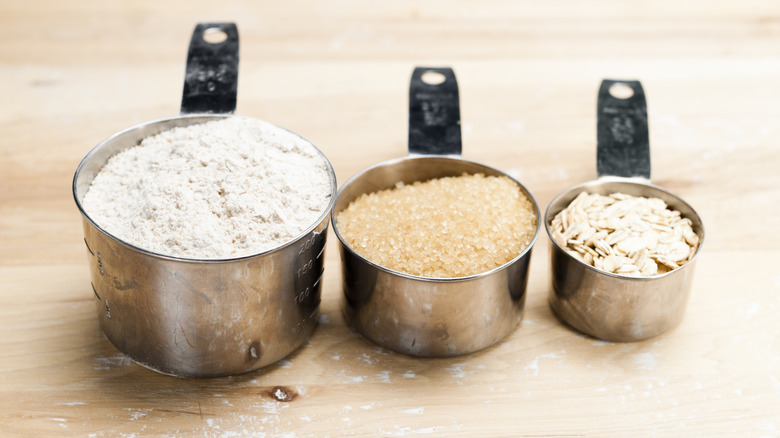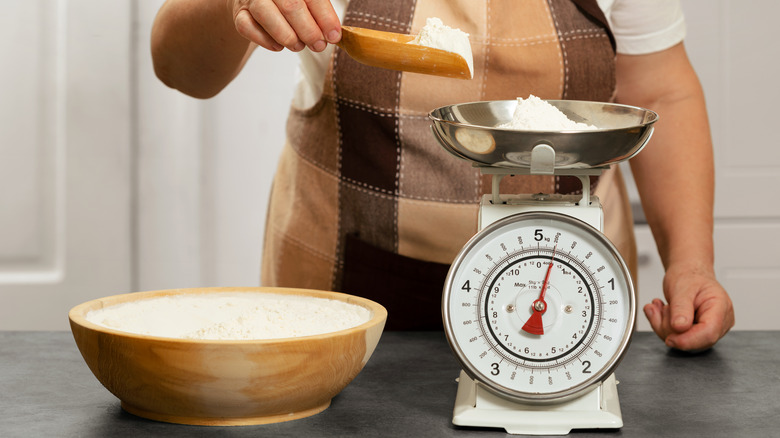How To Ensure Your Measuring Cups Are Accurate
Baking is all about precision. If your measuring cups aren't accurate, they can throw a whole recipe for your favorite red velvet cake or your chocolate mousse into a tailspin. Sadly, not all measuring cups are created equally and you may find yourself wondering if the ones you used at your grandmother's house measure the same as those in your own kitchen. There is only one way to tell and that is to break out the kitchen scale.
How can one measuring cup be different from another measuring cup? It happens, but you can determine the accuracy of your measuring cups by weighing a cup of water, and according to Wirecutter, eight fluid ounces weighs exactly .520652 pounds. So, simply weigh your empty measuring cup and then weigh it with 8 ounces of water. If you find, after subtracting the weight of the empty cup from the weight of the cup with water, it isn't quite close to that figure you know your measuring cup isn't accurate.
Go for stainless steel
Additionally, if you would rather use sugar to determine your measuring cups' accuracy, King Arthur's Baking notes that a cup of sugar is going to weigh seven ounces. Remember, if you use sugar, you are going to want to level it, but the process is the same. First, weigh the cup empty, then with the sugar, and subtract. Once you've figured out how much your measuring cups are off, you can then make any necessary adjustments when measuring dry and wet ingredients, or simply pick up a better set.
If you do the latter, what beyond accuracy is worth considering? Stainless steel measuring cups tend to hold up better and maintain their precision when compared to plastic measuring cups. This is because plastic measuring cups aren't heat resistant and can warp after multiple washings in the dishwasher. And while not a concern for accuracy, they can also pick up the odor of what they've been filled with, not to mention, detergents. So run the numbers for yourself, and see if you're due for a baking tool upgrade.

